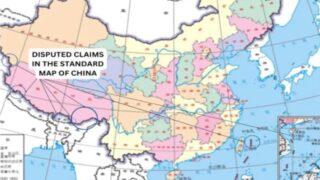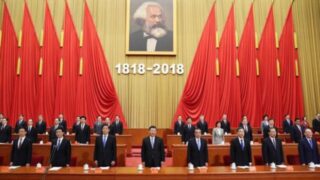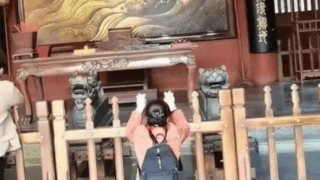The Standing Committee of the National People’s Congress approved a new version of the much-awaited statute, hailed as one of the most important new Chinese laws.
by Hu Zimo


The “Patriotic Education Law” (爱国主义教育法) is the brainchild of the CCP Central Propaganda Department and has been more than one year in the making. On October 24, the 14th National People’s Congress Standing Committee approved a revised version, which will take effect on January 1, 2024.
There is considerable expectation for this new and comprehensive statute of domestic propaganda, hailed as one of the most important new Chinese laws, to which new provisions keep being added. Interestingly, one of these last-minute additions, to Article 21, reinforces the idea that “religious clergy and believers” should also be mobilized and cooperate in the propaganda effort, and mentions specific content such as “promoting core socialist values and promote the construction of socialist culture with Chinese characteristics.” This is an important amendment, although what has most caught the attention of the observers is that “domestic” propaganda should now also target Taiwan and the Chinese diaspora overseas. This is consistent with the idea that Taiwan is part of China, and that overseas Chinese should still obey the CCP, although how these provisions will be implemented is not specified.
“Education” in the new law does not refer to schools only, and in fact the part on schools in the first draft was meager and has been expanded in the second version. The scope of the law is much broader. The list of institutions that should engage in this massive “educational” effort starts with the Party and the Army and includes pretty much everybody, from the media to Internet providers. It ends up with “parents and other guardians of minors,” who should understand that “Patriotic Education” starts at home. Echoing, perhaps unconsciously, the old religious motto that “every Christian is a missionary,” the law states that “every citizen should be part of the Patriotic Education effort.” Or else: the law includes a system of “honors and rewards” for those who will enthusiastically participate in the “Patriotic Education” enterprise, and of punishments for those who will not. Sabotaging or criticizing “patriotic education” is defined as a crime.
The content of “Patriotic Education” should include the “excellent traditional Chinese culture” and CCP ideology. However, the second controls the first. In addition to promoting awareness that China has one of the oldest cultures in the world, the content of “Patriotic Education” is listed as such: “the principles of Marxism-Leninism: Mao Zedong’s Thought; Deng Xiaoping’s Theory; [Jiang Zemin’s] Important Thought of the Three Represents, [Hu Jintao’s] Scientific Outlook on Development; and Xi Jinping’s Thought on Socialism with Chinese Characteristics for the New Era,” to which the fashion of the day, “Xi Jinping Thought on Culture,” has now been added. Interestingly, the law reminds the Chinese that Jiang Zemin’s Three Represents, which defined the central role of the CCP, and Hu Jintao’s Scientific Outlook on Development, which emphasized that China’s economic growth should be guided by Marx’s “scientific” ideology, should not be forgotten.


How does the CCP plan to implement “Patriotic Education”? Unavoidably, yet other propaganda institutions are created, including a Central Department for Patriotic Education, local agencies, and academic research centers on Patriotic Education. The National Day of the People’s Republic of China, as well as “the Anniversary of the Victory in the Chinese People’s War of Resistance against Japanese Aggression, the Martyrs’ Memorial Day, and the National Day for the Victims of the Nanjing Massacre,” should be specially devoted to “Patriotic Education” with classes and events all citizens should mandatorily attend. The law recognizes that Chinese will also continue to celebrate “the Spring Festival, Qingming [Tomb-Sweeping] Festival, Dragon Boat Festival, Mid-Autumn Festival, and New Year’s Day,” but local Departments for Patriotic Education should make sure that “Patriotic Education” should also be part of these celebrations.
“Patriotic Education” will also be spread through “literature, film, television, music, dance, drama, art, calligraphy and other literary and artistic works,” through the use and control of the Internet, and through “red tourism” to museums and memorials celebrating the history of the CCP. Taiwanese and overseas Chinese should also be reached by these activities.
There are netizens who have expressed the belief that the “Patriotic Education Law” will just expand the propaganda bureaucracy and create new well-paid positions in the national and local Departments for Patriotic Education, although funds in China are now not unlimited and there will be competition for their allocation. The CCP, on the other hand, insists that this is a new and revolutionary law that will completely reorganize the domestic propaganda. They seem to really believe that every Chinese, including those in Taiwan and abroad, may be converted into a missionary spreading the Party’s ideology.









